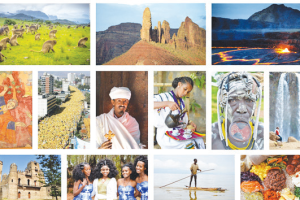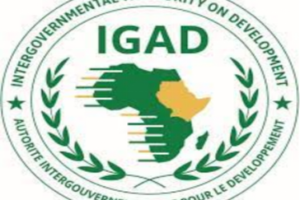
Ethiopian President Sahle-Work Zewde was in South Africa last week for the 28th World Economic Forum meeting of African countries. A number of African countries have boycotted the meeting in protest against the ongoing xenophobic attacks in the major cities where other African business owners are living and working.
The mob attacks seemed to have been scheduled to coincide with the conference in order to attract much more media attention. What the Ethiopian president found there was not the South Africa Mandela left behind. She found a very changed country where xenophobia and hatred of blacks against blacks has taken deep roots on the fertile soil of peace and freedom Mandela had left behind.
Black xenophobia is not a new phenomenon is South Africa. It was there for the last few years aggravated by domestic economic crisis, poverty, corruption and unemployment that has undermined the hopes and expectations millions of poor black South Africans. The root causes of the problems is the economic supremacy of the white minority that controls much of the country’s resources, the emergence of a black middle class whose prominent leaders were issued from the liberation movement and were leaders of the anti-Apartheid struggle.
Current South African president Ceril Ramaphosa was a trade union leader in the days of Confederation of South African Trade Unions (COSATU) militancy. Now he is a member of the class of South African black tycoons. Former president Zuma was a leading militant under the African National Congress (AMNC) and sacked from his post mainly for his involvement in grand corruption in tandem with big corporation owners. Most of Madiba’s former comrades are now members of the South African black elite and many of them are allegedly involved in grand corruption or bad governance.
The condition of most of black South Africans has gone from bad to worse after the need of Apartheid. Tens of millions are still living in old ghettos in Soweto and elsewhere. Tens of millions of young black South Africans are unemployed and desperate. Their living conditions have deteriorated and the hope and expectations born of the end of Apartheid has proved to be only a mirage.
Most of the South Africans are living in the old pre-Apartheid era ways. This has obviously created huge disgruntlement and collective hopelessness. Riots and violence were so far kept at bay in large part through police violence and brutalization of the already brutalized black majority South Africans.
Some political groups have been trying to exploit the situation to promote their agenda of economic freedom for black South Africans who are furious about their deplorable economic conditions. Their anger found expression in protest actions mostly by the Economic Freedom party led by the young and charismatic firebrand Julius Malema. He was expelled from the ANC youth wing for his militancy against corruption in ANC leadership and growing poverty and unemployment among the black population.
The South Africa Nelson Mandela has left behind seems to have evolved into the capital of international xenophobia and mob violence and mayhem against foreigners particularly Africans. True, this kind of xenophobic sentiment was palpable even when Mandela was alive but it did not assume the mass characteristic it assumed in the last few years in particular.
Mandela’s authority and respectability and moral fiber was the factor that kept xenophobia at bay during his presidential tenure. Once he was gone, all the nasty and previously repressed sentiments started to find expression and victimize fellow Africans who live and work in the country.
The iconic image of Mandela the peacemaker was instrumental in averting what could have been one of the potentially most devastating genocides in human memory. He extended the olive branch to both whites and blacks who accepted it. A few years down the road of reconciliation, the anger of destitute, jobless and despairing South Africans turned against their African brothers and sisters who went there expecting to find African solidarity and economic opportunities.
However, they were soon disappointed. South Africa is one of the leading economies on the continent where the prospects of jobs, freedom and other opportunities have been attracting Africans from other countries who suffered poverty and dictatorship and dreamt of a new and better life. What awaited migrants was a hidden face of South Africa which is a far cry from what Mandela fought all his life to create.
Mandela’s legacy is apparently overlooked and blacks are turning against fellow blacks from other parts of Africa. This is South Africa’s shame. Black people experienced this kind of xenophobia when the white minority regime was in power. South African blacks endured 400 years of white minority rule and rose against the system not to re-instate race hatred in another form.
Many African countries fought alongside the black people of South Africa during the apartheid era. Some of them were even involved in armed struggle by training and supplying freedom fighters with al available the means to overthrow the Apartheid regime.
Ethiopia is one of the few African countries that was staunchly supporting black freedom fighters in South Africa during the reign of the late Emperor Haile Sellassie. The diplomatic struggle at international forums to isolate and defeat the white minority regime has gone down in history as the most remarkable achievements of pan-African solidarity. Many Ethiopians were attracted to South Africa because of shared history and made common cause with the black population.
Many of them have lived there for many years and found good opportunities to work and thrive. However, that was earned at a high price. Their success was not well-received by all poor black South Africans whose anger against their deplorable condition could not find any outlet other than torching the businesses of other black Africans, killing some of them and looting their properties.
This black on black violence can be seen as part of the legacy of Apartheid that left the majority of black South Africans in economic limbo and whose black leaders did not care much about the fate of their own black population. Black South Africans cannot turn against the government because of police brutality regularly applied against them. They cannot loot white businesses because they are well protected by the police and security companies.
They cannot turn against South African black businesses because they consider them one of their own since blood is said to be thicker than water as the proverb has it. So, the chosen targets are other Africans who made it in South Africa and raised the ire and envy of the mindless and brutalized black minority groups within the black majority population. Hence, black nationalism is turned upside down and devours its own children and turns into brutal xenophobia.
The Ethiopian president used her presence in the country both to articulate Ethiopia’s economic interests and discuss the situation with Ethiopians living in the country. There was no Ethiopian killed during the lootings but some business owned by Ethiopians have also been ransacked according to reports. What guarantees do our compatriots have if they choose to stay in the country?
The South African authorities so far denounced the lootings and assassinations and have made arrests of suspected looters. Yet, there is no guarantee that the riots cannot resume any time soon although they are said to be dying down for now. Something more serious than verbal denunciation of the riots is needed from the authorities if normal business would resume sooner than later. The real causes of the riots and lootings should also be made public by the authorities.
It is legitimate to condemn this kind of xenophobia now as it was legitimate to condemn the South African apartheid system in the past. In less than a generation, South Africa is turning from the land of freedom and hope it was under Mandela, to one of the fortress of race hatred that assumes its most tragic and absurd form when fellow Africans turn against their African brothers and sisters.
The ANC, a once dynamic and revolutionary movement has now become sclerotic and allegedly corrupt as its leaders have apparently lost their old zeal and their vision of African Renaissance. This has rarely happened elsewhere in Africa and can be seen as a deadly symptom of a disease that is eating the black majority rule at its heart. It is also a sign that the old freedom fighters have failed to build a healthy nation based on black solidarity but a kind of black xenophobia that is so frightening to contemplate.
The Ethiopian Herald Sunday Edition 15 September 2019
BY MULUGETA GUDETA





